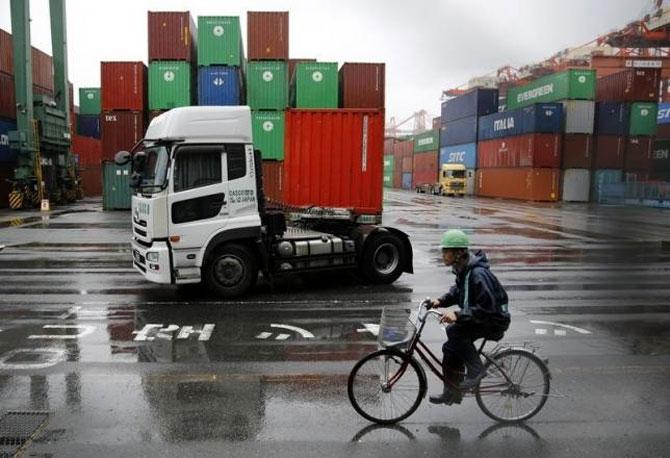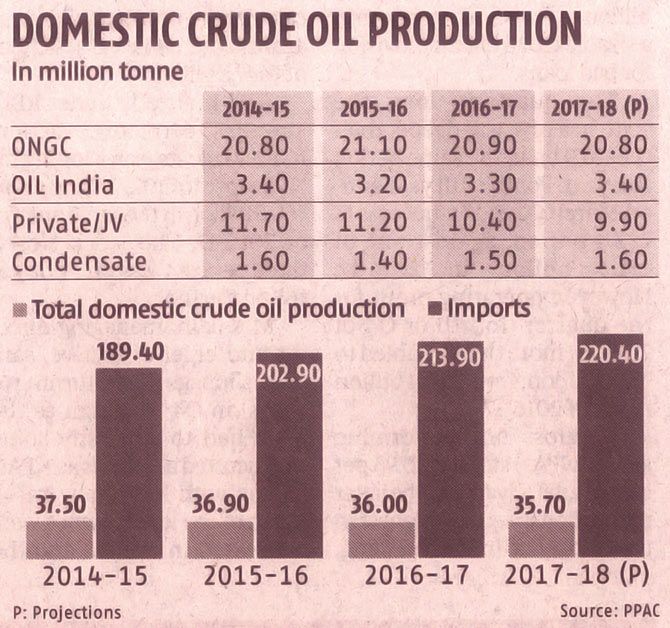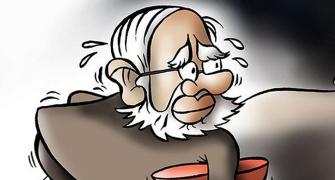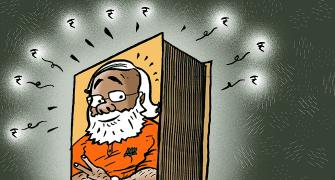'India's reliance on crude oil is still very high. Globally, natural gas is 25 per cent of the energy basket. In India, it has fallen to 6.5 per cent, from 11 per cent in 2014.'

Despite Prime Minister Narendra Modi's call in 2015 for a 10 per cent reduction by 2022 in the country's import of crude oil, these have risen 16.4 per cent in the four years of this government -- while domestic production declined 4.7 per cent.
Data from the Petroleum Planning and Analysis Cell, an official body, show our import dependency on crude having risen from 78.3 per cent in 2014-15 to 82.8 per cent in 2017-18. In absolute terms, from 189.4 million tonnes (mt) then to 220.4 mt in FY18, while domestic production dropped from 37.5 mt to 35.7 mt.
"Most of the things in the upstream (exploration and production) sector are long-term; the government has limited short-term levers. Very few marquee names have invested in the upstream, while the likes of BP (the British oil multinational) have taken write-downs on investment," says Anshuman Maheshwary, partner at consultants AT Kearney. "(Government-owned) ONGC is the only one investing -- the government has pushed it."
Annual production of ONGC and the other state major in the segment, Oil India, have remained static at 20.8 mt and 3.4 mt, respectively. And, production from the private sector and joint ventures came down from 11.7 mt in 2014-15 to 9.9 mt in 2017-18.

This comes at a time when the government is reportedly planning a 'windfall tax' on oil producers, to soften petrol and diesel retail prices. Under the proposal, companies such as ONGC or Oil India will pay additional cess for any revenue they earn from global crude prices crossing $70 a barrel.
"Because of such midway changes in policies, global majors are staying away from exploration activities in India. This was evident during the recent rounds of oil and gas auctions (Discovered Small Fields and Open Acreage Licensing Policy-1). Moreover, asking ONGC to acquire Gujarat State Petroleum Corp's assets and the Hindustan Petroleum Corporation stake has put additional pressure on it; that money would have gone on increasing the domestic production," said another expert.
During the four years of Modi, the demand for petroleum products in India has risen, by 23.8 per cent from 165.5 mt to 204.9 mt. In this period, the government had a fiscal advantage, with the crude oil import bill dropping from $112.7 billion in 2014-15 to $87.8 billion in 2017-18, owing to a massive drop in international prices; these have since started rising again.
In these four years, to the government's credit, the number of liquefied petroleum gas (or cooking gas) consumers increased by 26 per cent, from about 16 mt to 20 mt.
"Reliance on crude oil is still very high. Globally, natural gas is 25 per cent of the energy basket. In India, it has fallen to 6.5 per cent, from 11 per cent in 2014," Maheshwary added.










